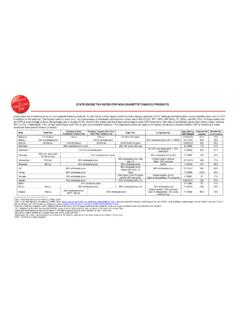Transcription of Peer group influence on academic performance of ...
1 Peer group influence on academic performance of undergraduate students in Babcock University, Ogun State Filade, Bankole Adeyemi1*, Bello, Alice Adejoke1, Uwaoma, Christiana , Anwanane, Bidemi Bassey2 and Nwangburuka, Kemi3 1 Department of Education, Babcock University, Ilishan, Ogun State, Nigeria. 2 Student Support Center, Babcock University, Ilishan, Ogun State, Nigeria. 3 Student Development Division, Babcock University, Ilishan, Ogun State, Nigeria. Accepted 9 May, 2019 ABSTRACT This study surveyed the influence of peer group on academic performance of undergraduate students in selected departments in Babcock University, Ogun State. Peer group plays a large role in the social, emotional and academic development of students; therefore, understanding the prospects and challenges of peer group is crucial for the productivity of educational processes and the organizational design of school systems in order to improve student s academic performance .
2 The study adopted mixed method design incorporating descriptive survey and ex post facto designs. Questionnaire was administered to one hundred and sixteen (116) students drawn from five (5) departments in the School of Education and Humanities. The number was derived from the totality of 300 level students of each department of the School using stratified random sampling method. The data generated from the study were analyzed using Pearson Product Moment Correlation Coefficient and Linear Regression Analysis to test the null hypotheses at significant level. The result of this study revealed that, peer group has significant influence on academic performance of undergraduate students.
3 Also, there is significant relationship between peer group and academic performance of students. Sequel to these findings, the researcher therefore recommended that, there is need for teacher to have greater supervision and regulations on students while they are in school, this will enhance the type of group they belong to. The government and ministry of education in all levels should ensure that trained counselors are posted in all schools and colleges so as to provide preventive counseling services and modify the behaviors of students who per-chance have been negatively influenced by peers. Also, School counselors should play a prominent and leading role in the matter of peer group influence by organizing lectures, seminars, career talk and symposiums that can create positive awareness on influence of peer group on academic performance of undergraduate students.
4 Keywords: Peer group , academic performance , undergraduate students. *Corresponding author. E-mail: INTRODUCTION academic activities are directed towards ensuring that students gain mastery of educational objectives. In schools, the extent to which these objectives have been met is determined greatly by the interaction of peer groups which could possibly reflect in student s academic performance . Peer group play a large role in the social, emotional and academic development of students. Allen in Steinberg (2005) maintains that peer group influence begins at an early age and increases through the teenage years. Thus, understanding the prospects and challenges of peer group is crucial for the productivity of educational processes and the organizational design of African Educational Research Journal Vol.
5 7(2), pp. 81-87, June 2019 DOI: ISSN: 2354-2160 Full Length Research Paper school systems in order to improve student s academic performance . Hamm et al. in Lavy and Schlosser (2007), argued that, for many students, friendships are critical interpersonal vehicle that move them towards psychological growth and maturity, allowing social compassion which influences the development of self-evaluation . The above statement suggests strongly, the unprecedented effect of peer group in almost all facet of adolescent s growth. Such effect could be seen in social and emotional lives of young people, which does not end at the above mentioned, but could also manifest in their attitude towards educational activities and careful consideration of these elements has shown that they reflect in the academic performance of students.
6 However, Castrogiovanni (2002) defined peer group as a small group of similar age, fairly close friends, sharing the same activities. In its most acceptable form, peer group is a healthy coming-of age intermediary, by which youth grasp negotiating skills and learn to deal with challenges and to solve problems in a social context. Peer group can also act as positive role model, for example, if one is involved with a group of people that are ambitious and working hard to attain high academic goals, one might feel pressured to follow suit to avoid feeling excluded from the group . A negative peer influence could be seen as one of the militating forces why most student record poorly in academic performance , the reason for this is not farfetched: they spend large amount of time in extra curriculum.
7 More often than none, academic priorities are neglected and thus academic performance grossly affected. academic performance refers to excellence in all academic discipline. Steinberg (2005) posits that academic performance encompasses students ability and performance ; it is multi-dimensional; it is intricately associated to human growth and cognitive, emotional and social physical development. academic performance also refers to how well a student is accomplishing his tasks and studies. There should be a interrelated relationship between peer group and academic performance . It was believed that student s academic performance correlates with the group he or she belongs.
8 Peer influence can be either positive or negative. If a student is influenced negatively by peer, it affects his or her academic performance . Nevertheless, stronger student do have an impact on their peers and actually help improve their overall academic performance . Conversely, positive peer influence on academic performance depends on person s self-identity, self-esteem and self-reliance. Peer influence can as well inspire student s academic vigor and motivation for achievement (Lashbrook, 2000). Peer relations are never more prominent than in adolescence which falls within the age group under this study. They spend more time than adults interacting with peers and recording a very high degree of happiness in Afr Educ Res J 82 peer contexts, while giving the greatest priority to peer norms for behavior (Brown and Larson, 2009).
9 This developmental stage in affiliation motivation appears to be highly preserved across peers. Moreover, several developmental studies on adolescents indicated that, relative to children and adults, they are sensitive and at a high response to a variety of social stimuli such as facial expressions and social feedback (Burnett et al., 2011).However, this evidence for hypersensitivity to social stimuli suggests that this age group may be more likely be exposed to either positive or negative peer stimuli in decision-making scenarios, thus setting the stage for a hyperbolic approach sensitization effect of peer context on decision making. It is well established that undergraduate students are more likely than adults to take risks, as revealed by elevated rates of experimentation with alcohol, tobacco , and drugs, unprotected sexual activity, violent and non - violent crime, and reckless driving (Steinberg, 2008).
10 In fact, they actually possess the knowledge, values, and processing competence to evaluate risky decisions as proficiently as adults do (Reyna and Farley, in Bankole and Ogunsakin, 2015). According to Olalekan (2016), it is generally observed that peer group has a lot of influence on students. This is seen from the role played by the peer group in the life and learning of a child, evidence abound that students feel more comfortable and relaxed among fellow students. A child who is brilliant and surrounded by dull friends would lose interest in learning. On the other hand, a peer group which is prone to study would have positive effect on a dull member towards learning and stimulate his/her interest on learning.














